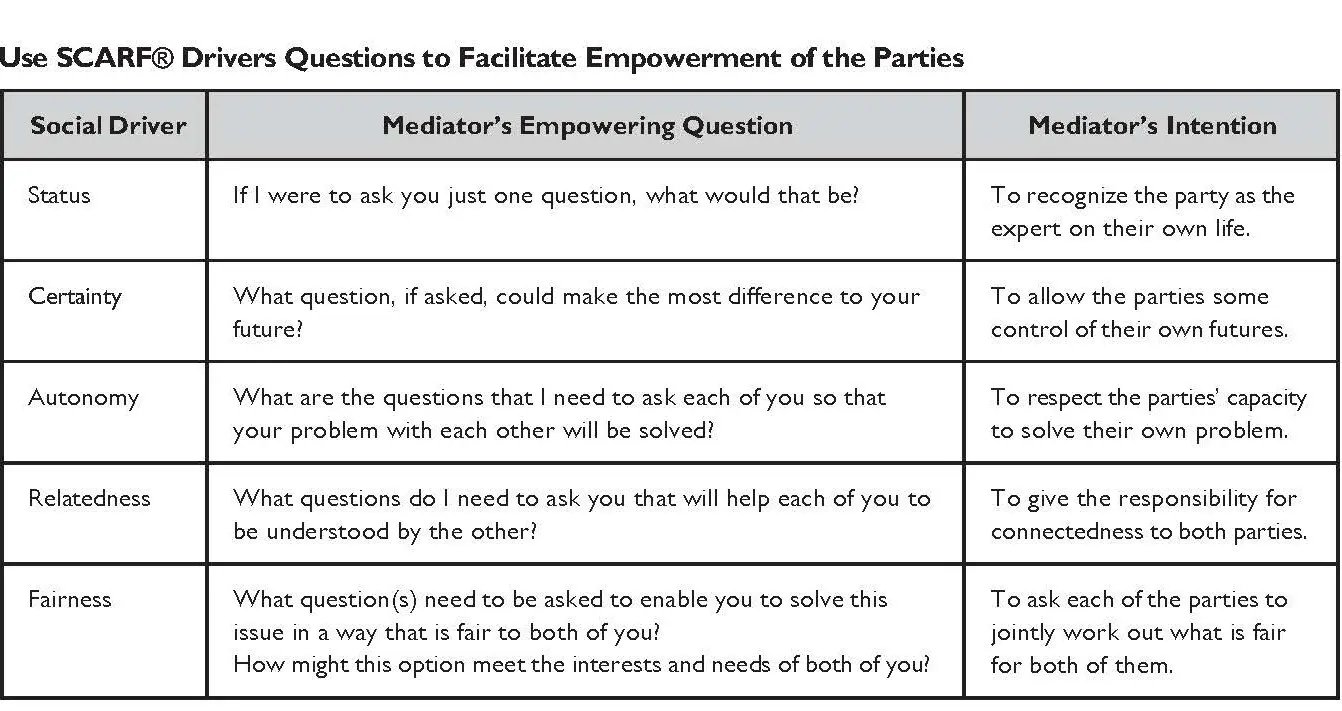
Welcome to this ‘Mediation Quick Tips’ Newsletter Issue 19
Challenging Questions – Empowering Parties
NOTE!
The 2nd Edition of ‘The Mediator’s Toolkit: Formulating and Asking Questions for Successful Outcomes’, published 10th June 2025 can be ordered on amazon.com or waterstones.com or on amazon.co.uk and other well known websites.
Next O’Sullivan Solutions online advanced mediation courses:
October 9, 10, 16, 17 – 2025
February 5, 6, 12, 13 – 2026
Time Schedule for all advanced mediation courses:
Irish Standard Time: / GMT: 1.30pm -5.30pm
Four half days – Live zoom course
advanced level mediator training
1. Create Opportunities for the Empowerment of Parties
Mediators need to believe in a party’s capacity to know the right answers, as they are the experts of their own conflict. On appropriate occasions during a mediation process, and when a mediator deems that the climate is conducive to it, parties can also be asked what questions they think are necessary to ask of themselves and of the other party.
To demonstrate one of the ways of doing this here I am employing Dr. David Rock’s SCARF® model
Dr. Rock has written many of the central academic and discussion papers that have defined the field of neuroleadership. His social neuroscience theory explores the biological foundations of the way people relate to each other and to themselves.
The SCARF® Drivers Model provides a framework to capture the common factors that can activate a reward or threat response in social situations.
The five SCARF® Drivers—status, certainty, autonomy, relatedness, and fairness provide an effective tool for exploring how parties in conflict perceive and respond to social situations. To different degrees, impacts on all five domains can influence a person’s perception of a situation and whether they view it as being threatening or rewarding.
Status: Our sense of importance relative to others
Certainty: Our need to be able to make accurate predictions about our future
Autonomy: Our fundamental need to have personal control and self-determination over the events in our lives
Relatedness: The degree to which we feel a sense of connectedness, similarity, and safety with those around us
Fairness: Our feeling that we are treated in an impartial, equal, and just manner, without favoritism or discrimination
Reference ‘The Mediator’s Toolkit: Formulating and Asking Questions for Successful Outcomes’
· Chapter 3: Working with the Brain in Mediation describes the theory of Dr. David Rock
· Chapter 16: Underlying Interests Questions
The needs of people in conflict and the impact of the conflict on them can be explored by using the five SCARF® Drivers domains as subjects for exploratory questioning. In this example on the table below I am only employing the SCARF® Drivers Model as a subject or tool for asking questions that will activate a reward response and facilitate the empowerment of the parties here. There are many other uses for it.

2. Manage questions about impact without engendering powerlessness in a party
Asking a party how an event or a person “made them feel” may convey to that party that they have no control over their emotions, and that the other party is completely responsible for their emotional response. The blamed party who is hearing these words may become defensive, thinking the mediator is not being impartial.
Example:
Instead of saying to the party:
How did that make you feel?
Replace it with more neutral language:
What was that like for you?
How did that impact you?
Next Newsletter
This will show how to manage the situation if you become stuck during a mediation session and do not know what to do or what question to ask next – it is a very simple effective technique that works wonderfully for me.
NOTE!
The 2nd Edition of ‘The Mediator’s Toolkit: Formulating and Asking Questions for Successful Outcomes’, published 10th June 2025 can be ordered on amazon.com or waterstones.com or on amazon.co.uk and other well known websites.
Next O’Sullivan Solutions online advanced mediation courses:
October 9, 10, 16, 17 – 2025
February 5, 6, 12, 13 – 2026
Time Schedule for all advanced mediation courses:
Irish Standard Time: / GMT: 1.30pm -5.30pm
Four half days – Live zoom course
advanced level mediator training



